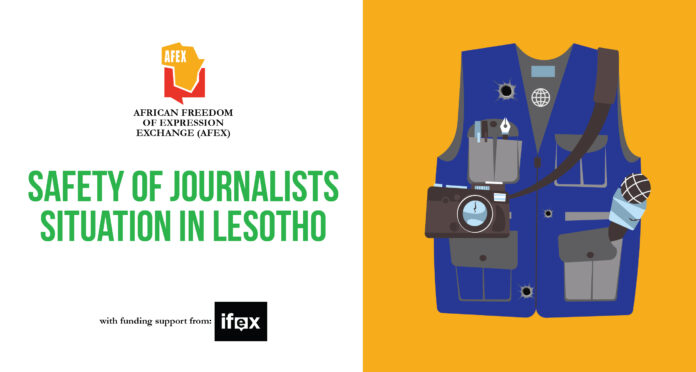For decades, journalists in Lesotho have craved a working environment that prioritizes their safety, but have only received lip services from politicians who only promise media reforms when they are looking for votes. A continuing state of insecurity has constrained many journalists to self-censor so as to not risk their lives. 2022 did prove to be a thankful year somewhat however, as there were no attacks on practitioners. This is believed to be largely due to training programmes that were unveiled by the government through national security agencies, especially the Police and the Military. The positive outcomes have since led to improved performance by Lesotho in the global press freedom rankings by Reporters Without Borders (from 88 in 2022 to 67 in 2023).
Still, the overall posturing of the Government of Lesotho towards press freedom is not a congenial one – it would appear that this government prefers laws and reforms which sabotage the environment for free and fearless journalism. For example, the country’s Penal Code, which was adopted in 2010, allows police officers to force journalists to reveal their sources. Also, citizens are subjected to surveillance through the Lesotho Communications Authority’s Rules of 2020, under which citizens must submit identity documents and proof of residence.
The May, 2023 murder of Ralikonelo “Leqhashasha” Joki of Tšenolo FM only gave another reminder of the realities that journalists who want to hold duty bearers answerable to the people, face. Meanwhile, apart from murder, journalists face lawsuits that carry hefty fines, violence and arbitrary arrests among others. These attacks have been mostly perpetrated by security agents – police and soldiers – who continue to carry out these offensive attacks with high levels of impunity.
In addition to the foregoing, journalists have also been subjected to physical and verbal attacks by supporters of successive governments, the opposition and other politically exposed persons.
The appalling state of media freedom in Lesotho only makes it imperative that measures are taken to improve the situation. Lesotho’s journalists should be able to operate without fear or favor. Government is encouraged to lead efforts that free the media environment in the country.
It is also recommended that the government passes the Media Law, and the Access and Receipt of Information Bill of 2000 to encourage free expression.
These recommendations and more are contained in this report.




